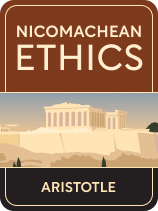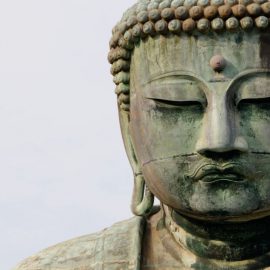

This article is an excerpt from the Shortform book guide to "Nicomachean Ethics" by Aristotle. Shortform has the world's best summaries and analyses of books you should be reading.
Like this article? Sign up for a free trial here .
What is the greatest virtue? What makes it so great? Does Aristotle’s theory hold water?
In his Nicomachean Ethics, Aristotle discusses virtues, both moral and intellectual. He argues that one virtue rises above all the others: wisdom. Unlike other virtues, it’s an end in itself and, thus, the best way to achieve happiness—the goal of life.
Read more to understand Aristotle’s opinion about the greatest virtue.
The Greatest Virtue
After discussing what moral virtues are and how to achieve them, Aristotle then turns his attention to intellectual virtues: different types of human knowledge. What is the greatest virtue, according to Aristotle? He concludes that the best of all virtues (and therefore virtue most important for a happy human life) is the intellectual virtue of wisdom.
(Shortform note: While Aristotle says here that wisdom is the best virtue, he partially amends this in his later work Politics. There, he argues that different kinds of people have different “best virtues.” To Aristotle, women, children, and those unable to reason (like the mentally disabled) all have ideal virtues of obedience. An excellent child obeys their parents (developing moral virtue by mimicking virtuous adults) until they become adults with different standards of excellence. Aristotle saw women and those unable to reason as natural inferiors to rational men—therefore, their ideal virtue was to obey their “superiors.” He implies that these groups can’t live happy lives, since he says here that human happiness requires wisdom.)
The intellectual virtues consist of the different kinds of human knowledge. There are multiple intellectual virtues, including technical knowledge like an art or craft, and social knowledge like judgments of character. Wisdom consists of philosophical knowledge—which Aristotle claims is the best kind of knowledge.
This is because philosophical knowledge is the most universal and stable type of knowledge—the best way to make a table or persuade a friend will change depending on all kinds of circumstances, but a math problem always has the same answer.
(Shortform note: To understand Aristotle’s argument here, it helps to understand how he defines philosophy. Aristotle (and all ancient Greek philosophers) considered science and mathematics to be part of philosophy. They put them in one category because these subjects all use logic to study the nature of the world. In fact, this was normal until relatively recently—scholars began to think of science and philosophy as separate fields in the 19th century. This context clarifies Aristotle’s argument: He uses mathematics as an example to argue that all philosophical knowledge is constant and universal.)
In addition, philosophical knowledge is the highest form of knowledge in the hierarchy of goods. People pursue philosophy just for the sake of virtue (the virtue of wisdom, specifically) and the happiness it brings. On the other hand, people pursue other kinds of knowledge for separate goods. For example, someone studies carpentry to make furniture, or studies rhetoric to run for political office—whereas they study philosophy just for the sake of gaining wisdom.
This means other intellectual virtues are simply a means to an end—and are therefore lesser goods (as we discussed in Aristotle’s hierarchy of good). Since wisdom is an end in itself, Aristotle concludes that it’s the best intellectual virtue for attaining happiness.
(Shortform note: Aristotle’s teacher Plato also argues that philosophy is the best form of human knowledge for happiness, though his reasoning as to why is different. In his Symposium, Plato suggests that happiness in part relies on a kind of immortality—the longer we live, the longer we are happy. Plato then claims that creating philosophy gets humans as close as they can to immortality, since a great philosophical work touches on eternal truths and outlives its creator by many years. Plato says people pursue philosophy not just for its own sake or for the sake of happiness but also for the sake of immortality. On the other hand, Aristotle doesn’t seem to consider any kind of immortality important for human happiness.)

———End of Preview———
Like what you just read? Read the rest of the world's best book summary and analysis of Aristotle's "Nicomachean Ethics" at Shortform .
Here's what you'll find in our full Nicomachean Ethics summary :
- Aristotle's philosophies on topics such as happiness, virtue, and wisdom
- What it means to be morally virtuous and how someone can develop moral virtue
- How wisdom contributes to the possibility of a happy life






